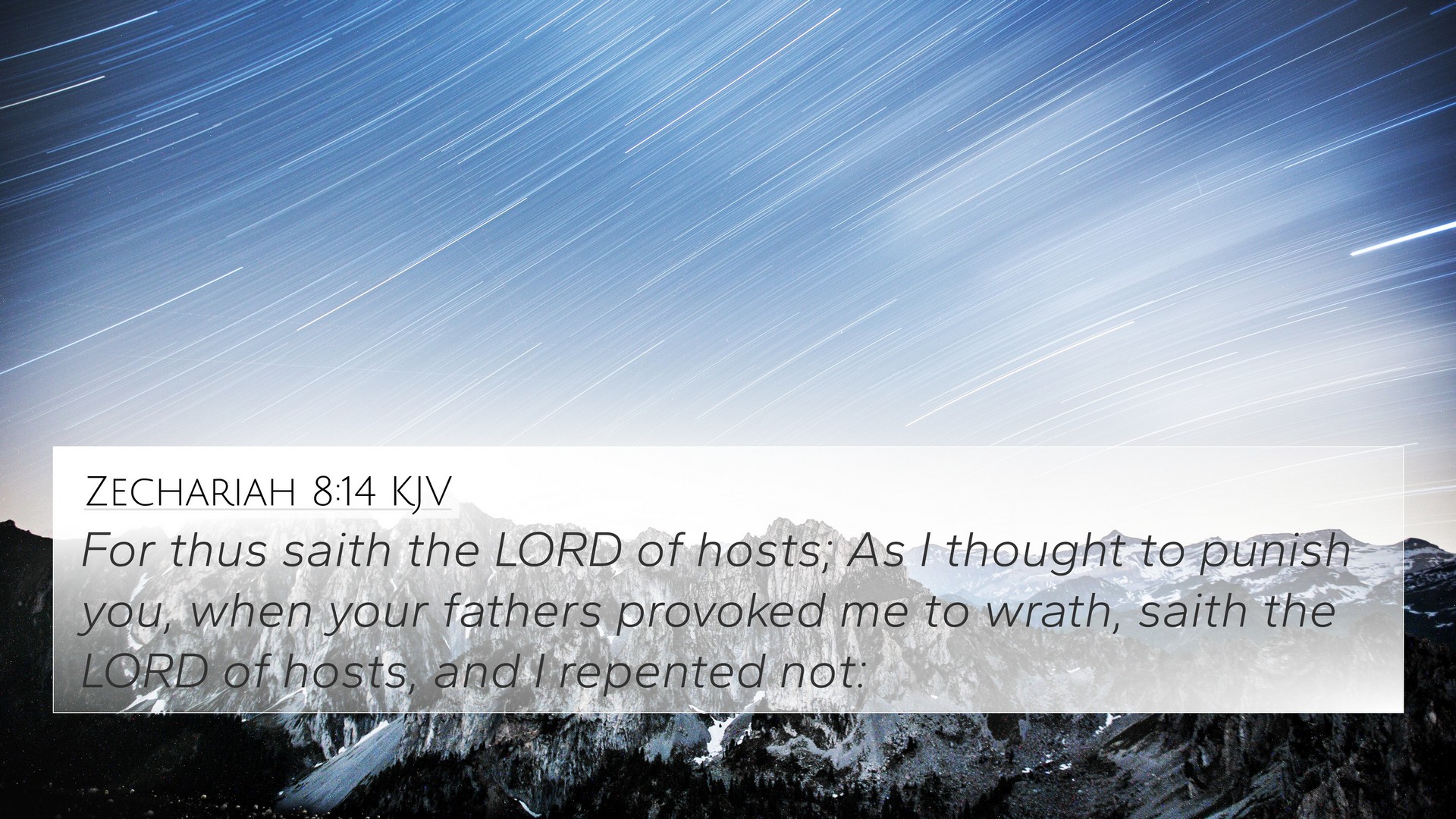This section features a detailed cross-reference designed to enrich your understanding of the Scriptures.
Below, you will find carefully selected verses that echo the themes and teachings related to Zechariah 8:14 KJV. Click on any image to explore detailed analyses of related Bible verses and uncover deeper theological insights.
 Jeremiah 31:28 (KJV) »
Jeremiah 31:28 (KJV) »
And it shall come to pass, that like as I have watched over them, to pluck up, and to break down, and to throw down, and to destroy, and to afflict; so will I watch over them, to build, and to plant, saith the LORD.
 Ezekiel 24:14 (KJV) »
Ezekiel 24:14 (KJV) »
I the LORD have spoken it: it shall come to pass, and I will do it; I will not go back, neither will I spare, neither will I repent; according to thy ways, and according to thy doings, shall they judge thee, saith the Lord GOD.
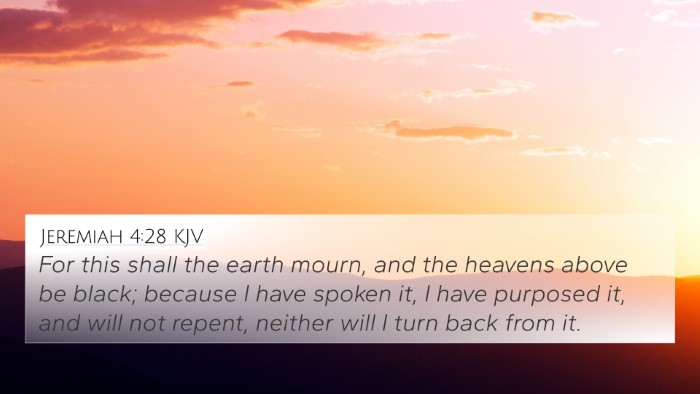 Jeremiah 4:28 (KJV) »
Jeremiah 4:28 (KJV) »
For this shall the earth mourn, and the heavens above be black; because I have spoken it, I have purposed it, and will not repent, neither will I turn back from it.
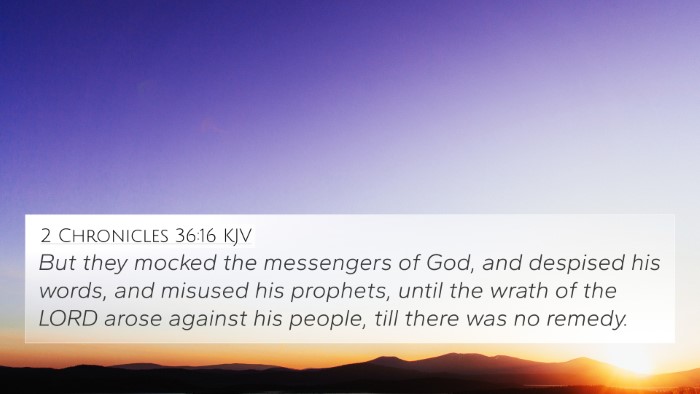 2 Chronicles 36:16 (KJV) »
2 Chronicles 36:16 (KJV) »
But they mocked the messengers of God, and despised his words, and misused his prophets, until the wrath of the LORD arose against his people, till there was no remedy.
 Psalms 33:11 (KJV) »
Psalms 33:11 (KJV) »
The counsel of the LORD standeth for ever, the thoughts of his heart to all generations.
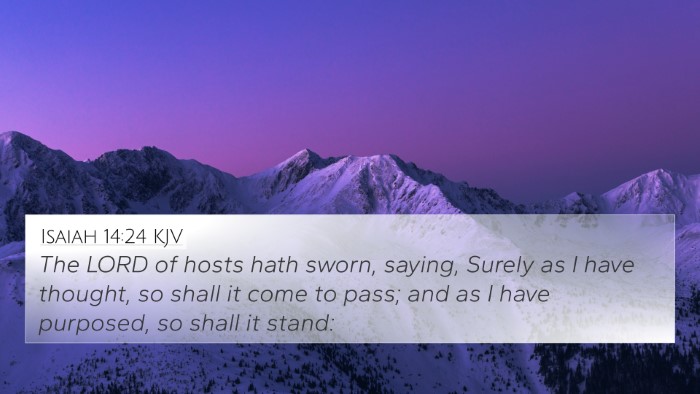 Isaiah 14:24 (KJV) »
Isaiah 14:24 (KJV) »
The LORD of hosts hath sworn, saying, Surely as I have thought, so shall it come to pass; and as I have purposed, so shall it stand:
 Jeremiah 20:16 (KJV) »
Jeremiah 20:16 (KJV) »
And let that man be as the cities which the LORD overthrew, and repented not: and let him hear the cry in the morning, and the shouting at noontide;
 Jeremiah 15:1 (KJV) »
Jeremiah 15:1 (KJV) »
Then said the LORD unto me, Though Moses and Samuel stood before me, yet my mind could not be toward this people: cast them out of my sight, and let them go forth.
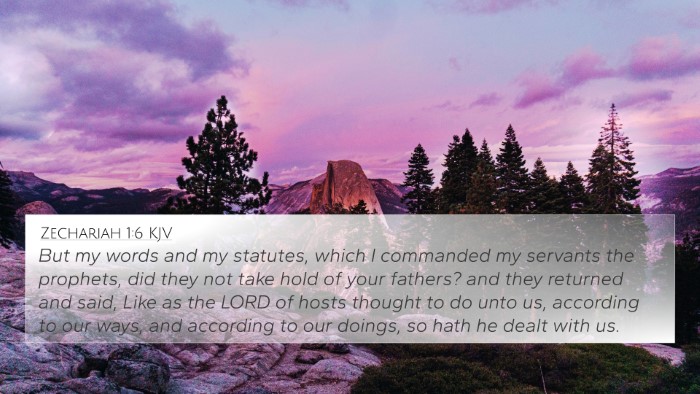 Zechariah 1:6 (KJV) »
Zechariah 1:6 (KJV) »
But my words and my statutes, which I commanded my servants the prophets, did they not take hold of your fathers? and they returned and said, Like as the LORD of hosts thought to do unto us, according to our ways, and according to our doings, so hath he dealt with us.
